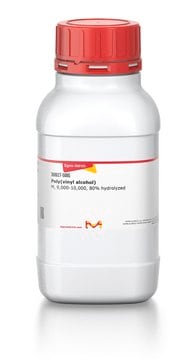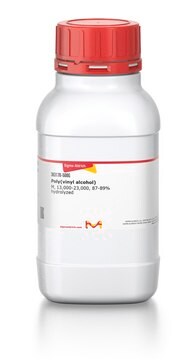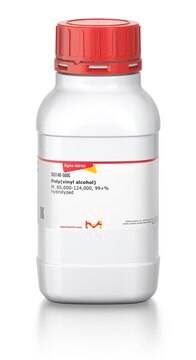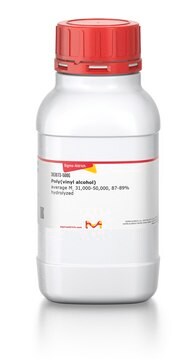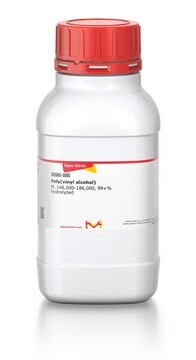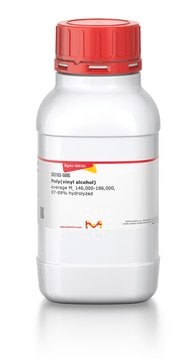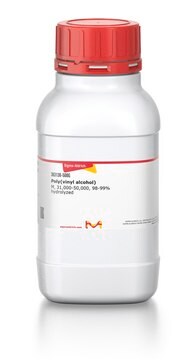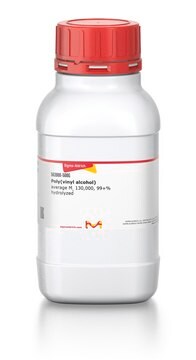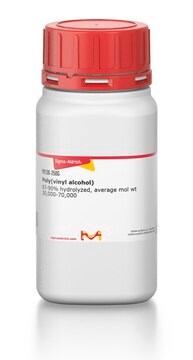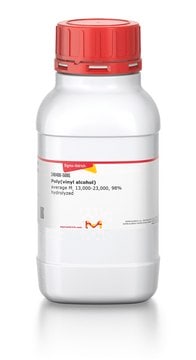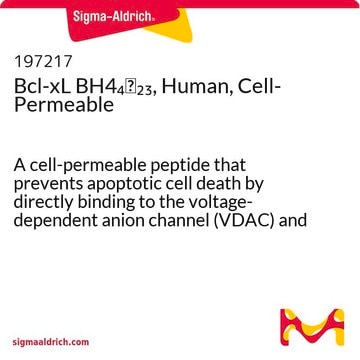363081
Poli(vinil alcohol)
average Mw 85,000-124,000, 87-89% hydrolyzed
About This Item
Productos recomendados
form
powder or crystals
mol wt
average Mw 85,000-124,000
falling ball
23-27 cP, 4 % in H2O(20 °C)(lit.)
InChI
1S/C2H4O/c1-2-3/h2-3H,1H2
InChI key
IMROMDMJAWUWLK-UHFFFAOYSA-N
¿Está buscando productos similares? Visita Guía de comparación de productos
Categorías relacionadas
General description
Application
PVA can be used as a surface stabilizer in preparing drug delivery carriers for the slow release of tetracycline.
Highly concentrated alginate/polyvinyl alcohol (PVA) bioinks can be used to prepare 3D bioprinting porous scaffolds. Partial diffusion of PVA sols from printed scaffolds creates a large number of micropores.
PVA can also be used as a water-soluble polymer template to synthesize nanosized polypyrrole via in situ polymerization. PVA generates stable dispersions of polypyrrole nanospheres in water and the size of nanospheres depends on the molecular weight and concentration of PVA.
Storage Class
11 - Combustible Solids
wgk_germany
WGK 1
flash_point_f
No data available
flash_point_c
No data available
ppe
Eyeshields, Gloves, type N95 (US)
Certificados de análisis (COA)
Busque Certificados de análisis (COA) introduciendo el número de lote del producto. Los números de lote se encuentran en la etiqueta del producto después de las palabras «Lot» o «Batch»
¿Ya tiene este producto?
Encuentre la documentación para los productos que ha comprado recientemente en la Biblioteca de documentos.
Los clientes también vieron
Nuestro equipo de científicos tiene experiencia en todas las áreas de investigación: Ciencias de la vida, Ciencia de los materiales, Síntesis química, Cromatografía, Analítica y muchas otras.
Póngase en contacto con el Servicio técnico
